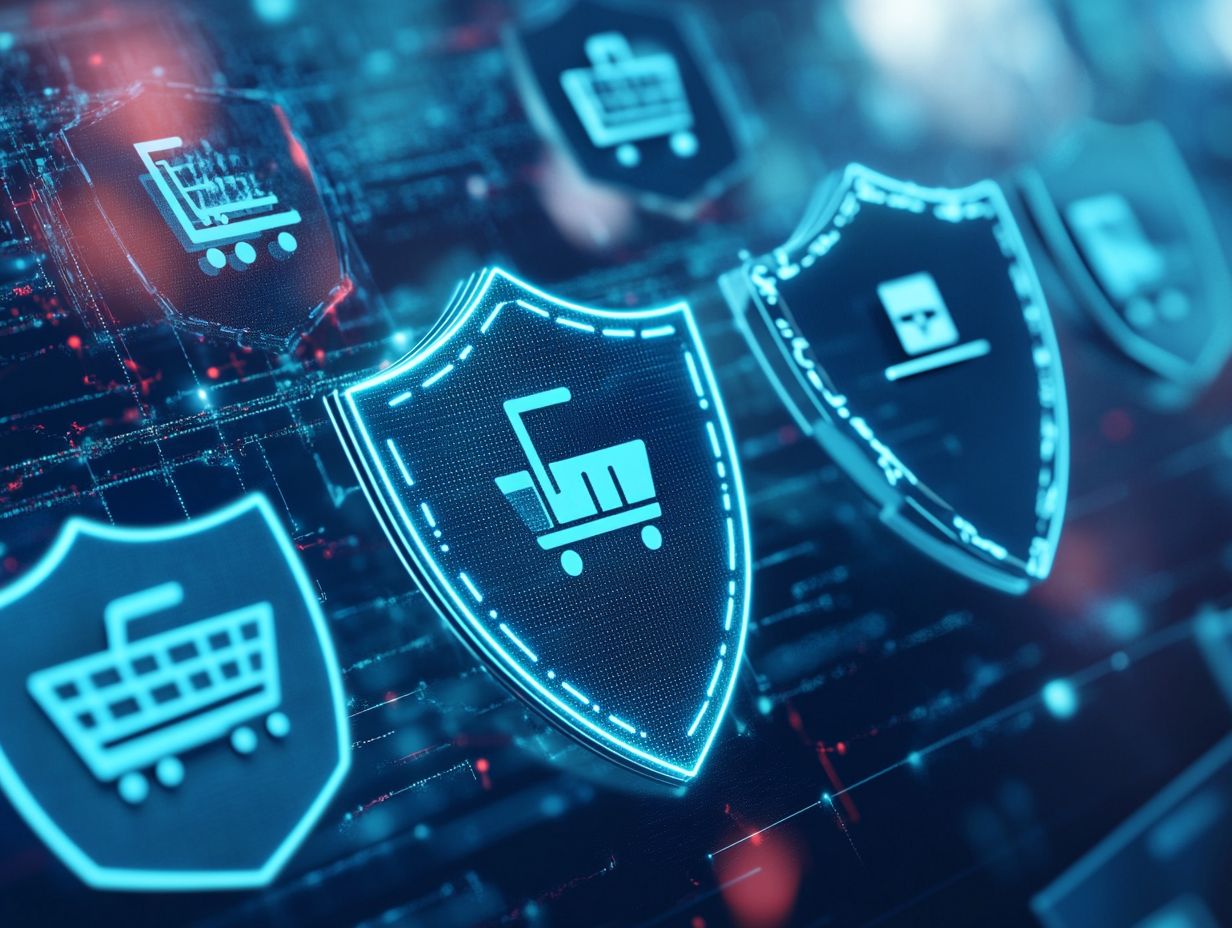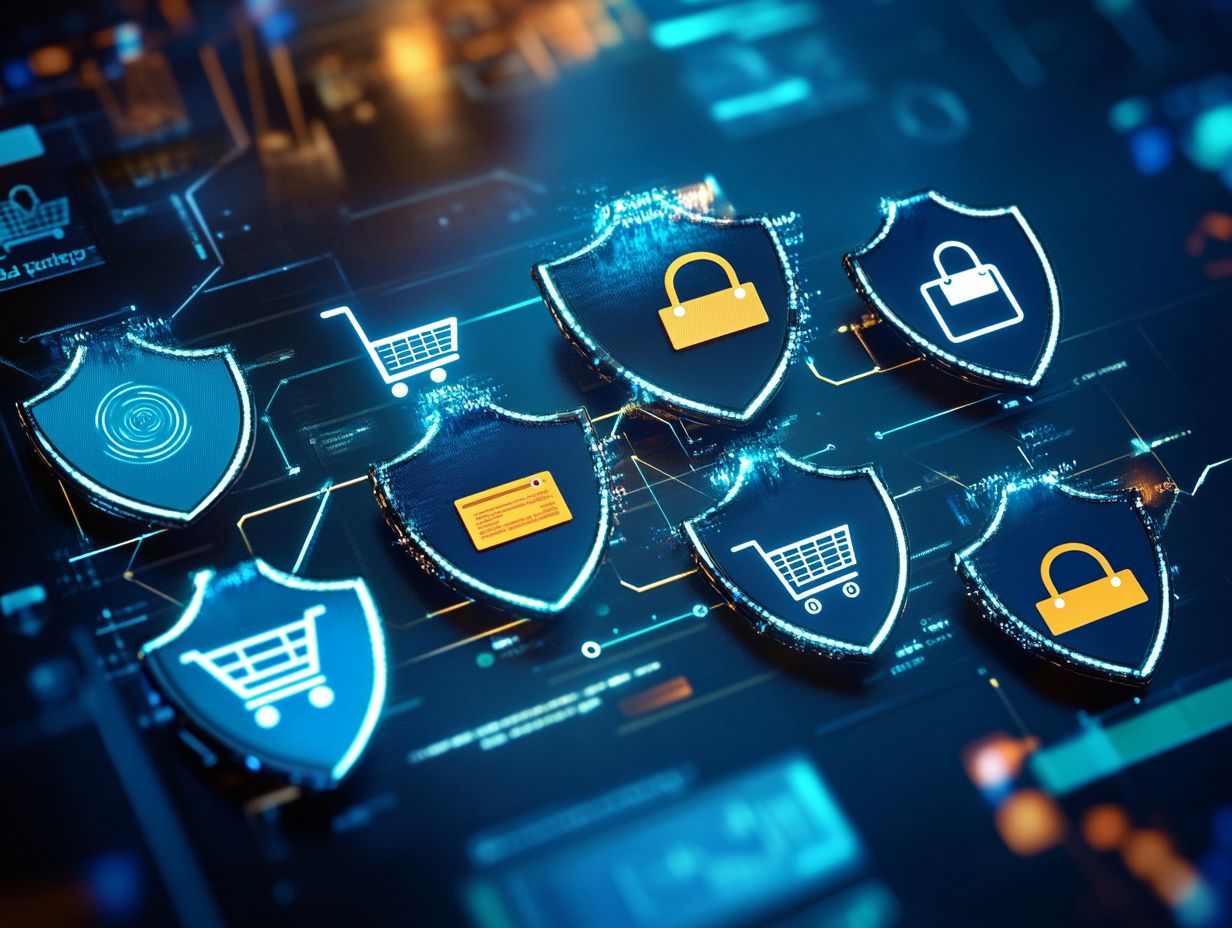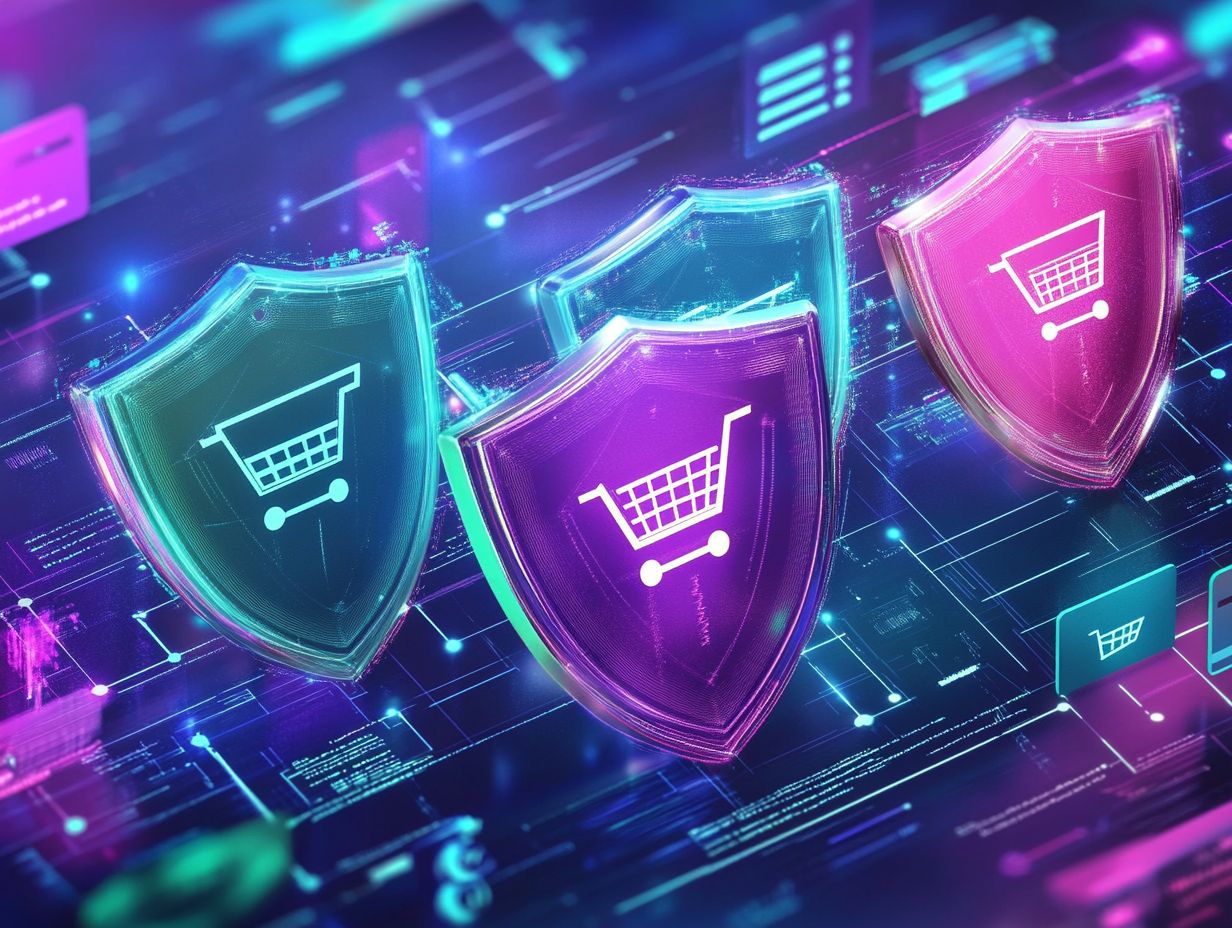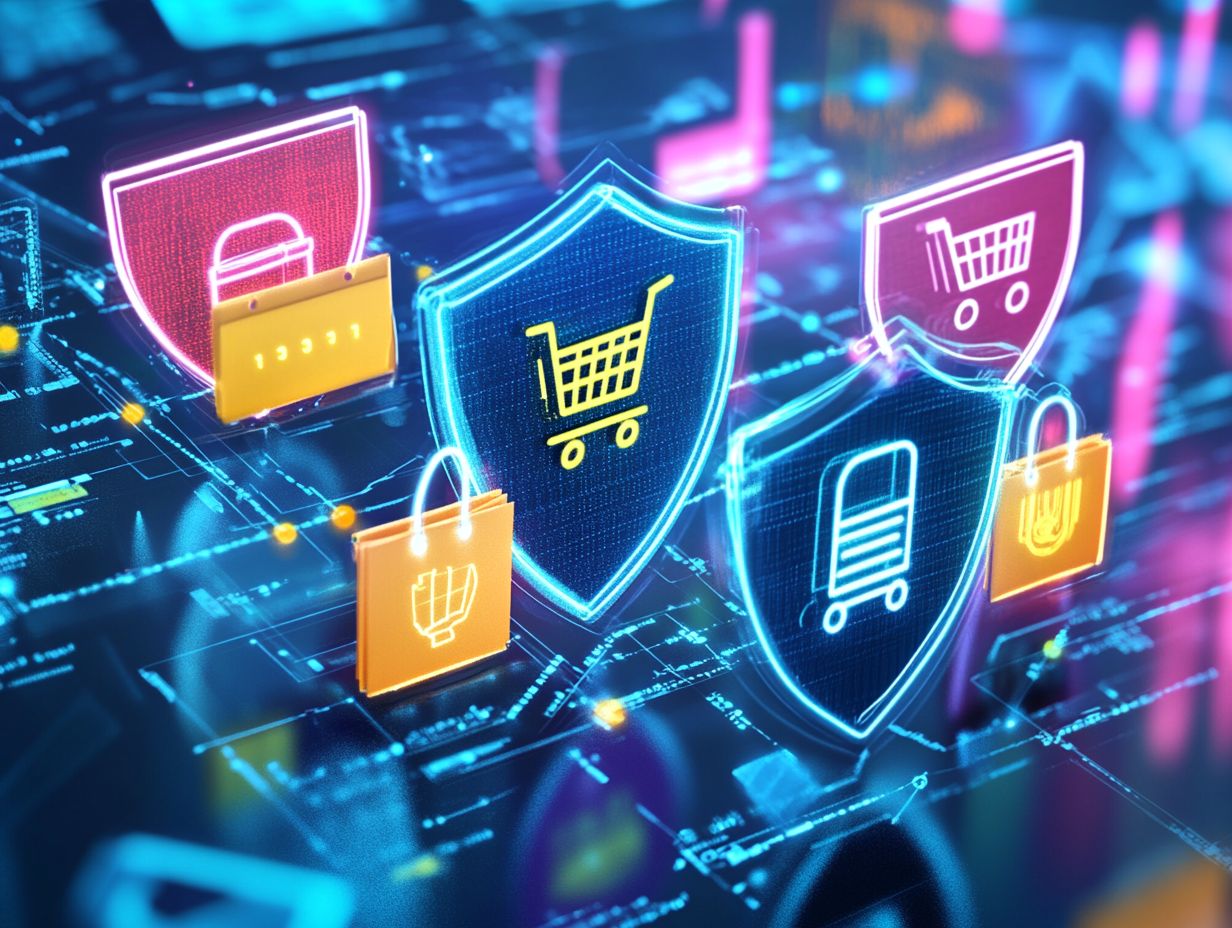5 managed security solutions for e-commerce
In today s digital landscape, safeguarding your e-commerce business is absolutely essential.
With cyber threats escalating, relying on basic security measures simply won’t suffice. This article delves into five essential managed security solutions that can strengthen your online store everything from anti-malware software to two-factor authentication.
You ll also discover the significance of managed security for e-commerce, its many benefits, the risks of neglecting security, compliance issues, and useful tips for selecting the right solution.
Act now to secure your e-commerce business and protect your customers!
Contents
- Key Takeaways:
- 1. Anti-Malware and Anti-Virus Software
- 2. Firewall Protection
- 3. Intrusion Detection and Prevention Systems (IDPS)
- 4. Data Encryption
- 5. Two-Factor Authentication
- Why Is Managed Security Important for E-commerce?
- What Are the Benefits of Using Managed Security Solutions?
- What Are the Risks of Not Having Managed Security for E-commerce?
- How Can Managed Security Help with Compliance and Regulations?
- What Are the Different Types of Managed Security Solutions Available?
- How Can a Business Choose the Right Managed Security Solution for Their E-commerce Site?
- Frequently Asked Questions
- What are the top 5 managed security solutions for e-commerce?
- How does a web application firewall protect e-commerce websites?
- What is vulnerability management and why is it important for e-commerce?
- How do intrusion detection and prevention systems enhance e-commerce security?
- Why is data encryption important for e-commerce?
- How do secure payment gateways contribute to e-commerce security?
Key Takeaways:

Protect your e-commerce site from cyber threats with essential anti-malware and anti-virus software. Firewall protection creates a barrier between your network and many untrusted outside threats, keeping customer data safe. Intrusion detection and prevention systems monitor network activity and proactively block attacks.
1. Anti-Malware and Anti-Virus Software
In today s world, where digital transformation reigns supreme, anti-malware and anti-virus software are your frontline defenders against a multitude of cyber threats. These tools are vital for protecting IT systems from malware attacks that can compromise the digital economy and jeopardize customer privacy.
You need to safeguard sensitive information from cybercriminals. They employ nefarious tactics, such as ransomware that encrypts your data or spyware that quietly siphons off personal details.
Regular software updates are non-negotiable; they patch vulnerabilities and keep your systems fortified against the ever-evolving threat landscape.
By integrating these solutions into a comprehensive cybersecurity strategy, you not only enhance your overall security posture but also bolster user trust, reassuring them that their data is well-protected.
Investing in employee training programs can significantly reduce risks associated with phishing scams and other social engineering tactics, empowering your team to recognize and respond to potential threats effectively.
2. Firewall Protection
Firewall protection stands as a cornerstone of cybersecurity, serving as a formidable barrier between your trusted internal networks and many untrusted outside threats. This critical defense mechanism plays an essential role in maintaining the integrity of e-commerce security while significantly reducing the risk of unauthorized access.
You have a choice among various types of firewalls, including both hardware and software options, each designed to fulfill unique roles in monitoring and controlling network traffic.
Hardware firewalls typically find their place between your network and gateway, delivering robust protection against external attacks. In contrast, software firewalls operate on individual devices, offering customized security solutions tailored to your specific environment.
By meticulously scrutinizing both incoming and outgoing traffic based on predetermined security rules, these firewalls help ensure that your sensitive data remains uncompromised. Organizations like yours depend on such protection to maintain compliance with regulations such as GDPR (General Data Protection Regulation) and PCI DSS (Payment Card Industry Data Security Standard), safeguarding user data and reinforcing trust in their operations.
3. Intrusion Detection and Prevention Systems (IDPS)
Intrusion Detection and Prevention Systems (IDPS) are essential pillars of a comprehensive cybersecurity strategy, allowing you to vigilantly monitor network traffic for any suspicious activities. These systems provide crucial threat detection capabilities to defend against the increasingly sophisticated tactics employed by cybercriminals.
By leveraging a range of technologies, including signature-based detection, anomaly-based monitoring, and stateful protocol analysis, IDPS can identify potential threats in real-time. Implementing an effective IDPS not only enables you to detect intrusions but also ensures you can respond swiftly to any incidents.
Having a well-crafted incident response plan is vital; it outlines the necessary steps to mitigate risks, ensuring you can react promptly and efficiently in the face of threats.
Together, these components enhance your overall risk management, empowering you to stay one step ahead of cyber threats while diligently safeguarding your sensitive information.
4. Data Encryption

Data encryption is essential for safeguarding sensitive information, especially for e-commerce businesses. It ensures compliance with regulations like GDPR and enhances customer trust in online transactions by protecting data from unauthorized users.
When you utilize SSL certificates (a technology that secures data transferred over the internet), you create a secure channel between your web server and customers browsers. This effectively encrypts data during transfer.
This adds a protective layer over customer details. It includes payment information and personal addresses, making it exceedingly difficult for cybercriminals to intercept or misuse that information.
Encryption isn t just crucial during data transfer; it also plays a pivotal role in securing data at rest. Even if hackers manage to access a server, the encrypted information remains unintelligible, safeguarding your customers privacy.
The significance of these encryption methods cannot be overstated. They are integral to maintaining customer trust and preventing potentially devastating data breaches that could impact both individuals and businesses alike.
5. Two-Factor Authentication
Two-factor authentication (2FA) significantly enhances your security for online transactions by requiring you to provide two forms of identification. This simple step dramatically reduces the risk of unauthorized access and strengthens the overall effectiveness of your passwords in the ever-evolving cybersecurity landscape.
2FA acts as a robust barrier against potential threats, adding extra layers of verification. Typically, you ll receive a one-time code via SMS or use dedicated authenticator apps that generate time-sensitive tokens.
When you engage in financial transactions, these measures are crucial for instant protection and peace of mind. They deter unauthorized attempts and effectively mitigate the risks associated with various types of fraud.
Even if your passwords are compromised, attackers will still encounter an additional hurdle. This multi-faceted approach reinforces the integrity of your sensitive data, making it a critical element in today s digital financial operations.
Why Is Managed Security Important for E-commerce?
Managed security is essential for e-commerce businesses like yours, offering comprehensive protection against cyber threats while ensuring compliance with industry regulations. This approach builds customer trust and implements effective risk management through robust security measures.
In today s digital landscape, where a single data breach can result in crippling financial losses and a tarnished reputation, this tailored solution specifically addresses the unique vulnerabilities that online retailers face.
By deploying advanced technologies such as real-time monitoring and information about potential threats, these services empower you to proactively identify and mitigate risks before they escalate.
The expertise provided by managed security services is crucial in developing and executing incident response plans. This ensures that swift action is taken in the event of a breach. Ultimately, these measures enhance your e-commerce platform’s security posture and reinforce consumer confidence by safeguarding sensitive information and maintaining the integrity of transactions.
What Are the Benefits of Using Managed Security Solutions?
Utilizing managed security solutions brings a wealth of advantages your way, including enhanced risk reduction, streamlined compliance with regulations, and bolstered defenses against ever-evolving cyber threats. This ultimately cultivates greater customer trust in your e-commerce platform.
These solutions offer round-the-clock monitoring, ensuring that potential threats are detected and addressed in real-time essential for maintaining operational integrity.
They also provide access to expert knowledge that your business may not possess internally. This allows you to implement tailored security measures designed to address specific vulnerabilities.
For instance, you might find that your retail operation is better shielded against phishing attacks thanks to these customized protocols. Another organization could effectively protect sensitive data through advanced encryption practices.
As cybercriminals continuously innovate, having these managed security solutions gives the power to your business to stay ahead of the curve. This significantly minimizes the risk of breaches and safeguards your reputation in the digital marketplace.
What Are the Risks of Not Having Managed Security for E-commerce?

Failing to implement managed security for your e-commerce business opens the door to significant risks, including data breaches and financial fraud. These escalating cyber threats can jeopardize customer privacy and trust.
Inadequate security measures can lead to severe legal consequences, as regulators are increasingly vigilant about compliance with data protection laws. For example, in 2020, a prominent retail giant faced a staggering fine of over $5 million due to a data breach exposing millions of customer records.
These penalties can hit your finances hard and damage your brand’s image, creating a ripple effect that can erode customer loyalty. Don’t let your business become another statistic the average cost of a data breach in 2021 was a staggering $4.24 million. This underscores the urgent necessity for robust cybersecurity protocols that protect sensitive information.
How Can Managed Security Help with Compliance and Regulations?
Managed security plays an important role in helping you navigate compliance with regulations like GDPR (General Data Protection Regulation) and PCI DSS (Payment Card Industry Data Security Standard).
By implementing essential security protocols, you ensure ongoing adherence to requirements that keep your business compliant. This support includes regular audits and detailed reporting, which help you identify potential vulnerabilities while showcasing your commitment to high security standards.
Keeping your security measures current and aligned with evolving regulations encourages a culture of transparency and accountability within your organization.
Proactive compliance management not only builds customer trust but also reassures clients that their sensitive information is well protected.
Ultimately, prioritizing compliance through these services allows you to mitigate risks and avoid costly penalties, all while strengthening your relationships with customers.
What Are the Different Types of Managed Security Solutions Available?
You have a wealth of managed security solutions at your disposal, each carefully designed to tackle specific facets of cybersecurity. Whether it’s threat detection, incident response (the process of managing security breaches), or comprehensive risk management tailored to the e-commerce landscape, there s a solution that fits your needs.
Take managed firewalls, for example. They serve as your frontline defense, vigilantly monitoring incoming and outgoing traffic to thwart unauthorized access. On the other hand, intrusion detection systems excel at spotting potential threats once they breach initial defenses, enabling you to respond swiftly to any suspicious activity.
Vulnerability assessments systematically pinpoint and evaluate weaknesses within your systems. This proactive approach gives you the power to mitigate risks before they can be exploited.
When combined, these solutions form a robust security posture, ensuring that you are well-equipped to navigate an ever-evolving threat landscape.
How Can a Business Choose the Right Managed Security Solution for Their E-commerce Site?
Choosing the right managed security solution for your e-commerce site requires a thorough assessment of your specific needs, a clear understanding of compliance requirements, and careful evaluation of potential vulnerabilities. This approach is essential for effectively mitigating cyber threats and ensuring robust business operations.
Also, consider the provider’s expertise in sectors relevant to your operations. Specialized knowledge can enhance the effectiveness of the security measures they implement.
It s equally important to review the range of services offered, such as real-time monitoring, incident response, and proactive threat hunting, to ensure they meet your organization s particular requirements.
Don’t overlook the importance of evaluating customer support options, including responsiveness and availability. When threats arise, having immediate access to knowledgeable assistance can make all the difference in safeguarding your critical data and maintaining customer trust.
Frequently Asked Questions

What are the top 5 managed security solutions for e-commerce?
The top five managed security solutions for e-commerce include: web application firewalls, vulnerability management, intrusion detection systems, data encryption, and secure payment gateways.
How does a web application firewall protect e-commerce websites?
A web application firewall acts like a shield. It monitors and filters incoming traffic, blocking malicious requests that could harm your e-commerce site.
This protection helps prevent attacks like SQL injection and cross-site scripting, keeping your business safe.
What is vulnerability management and why is it important for e-commerce?
Vulnerability management means finding and fixing weaknesses in your system. Regular scans for vulnerabilities are vital to protect sensitive customer data from unauthorized access.
How do intrusion detection and prevention systems enhance e-commerce security?
Intrusion detection and prevention systems (IDPS) watch network traffic for harmful activities.
They can automatically block or alert you about suspicious behavior, protecting against brute force attacks and denial-of-service attacks.
Why is data encryption important for e-commerce?
Data encryption protects sensitive customer information, like credit card numbers and personal details.
It keeps data safe during transmission, ensuring that only the intended recipients can access it.
How do secure payment gateways contribute to e-commerce security?
Secure payment gateways add another layer of security to transactions.
They encrypt payment information and verify transactions, helping to prevent fraud and secure customer data.






